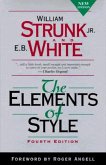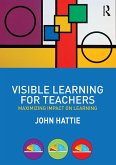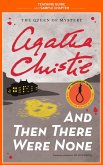This book contains in depth readings of major works since the World War Two: Waiting for Godot, The Balcony, Miguel Street, The Bell Jar, The Bluest Eye, White Noise and Hitchcock's Vertigo. In the aftermath of World War II, a great deal of innocence, if not all of it, was lost as the world reeled from the horrors of fascism (in which individuals were transformed into compliant masses using cutting edge propaganda and technology), concentration camps (in which people were eliminated using state of the art science and technology) and atomic bombs (also the result of astonishing advances in science). It was no longer possible to see science as certain salvation. Clearly, science could be used for destructive purposes, and there was nothing in the science itself that would save us. To put it another way, a revolution in technology was not a revolution in ethics, or wisdom, or self-awareness. One result: the world began to look like a place where everything was an effect of power-who had it, who didn't, who lost it, who gained it. We no longer lived in a world imagined as an ordered creation of God or nature; we lived in a political world. If literature at the beginning of the century responded with horror at the reality behind the façade (the "infrastructure" behind the "superstructure"), literature after World War II no longer tries to figure out how to reconcile the two. Instead, it sets out to explore the force behind appearances that has such power to sway us, or deceive us, or impoverish us, or isolate us. This force is no longer treated like something invisible, something inexplicable, something that "just happens." Nor is it misunderstood as something outside of us and beyond us. In The Picture of Dorian Gray, we are left with this sense of "if only": if only Dorian had never met Lord Henry; if only he had not made such a foolish wish as to let the painting age while he stayed young; or, having made such a wish, if only he had repented, changed his mind. Now the emphasis shifts to much more existential questions. What is perception? What is memory? What is knowledge? What is power? Now, the assumption is that none of these things are essential in themselves, but rather all of them are an effect of relationship.
If literature at the beginning of the century responded with horror at the reality behind the façade (the "infrastructure" behind the "superstructure"), literature after World War II no longer tries to figure out how to reconcile the two. Instead, it sets out to explore the force behind appearances that has such power to sway us, or deceive us, or impoverish us, or isolate us. This force is no longer treated like something invisible, something inexplicable, something that "just happens." Nor is it misunderstood as something outside of us and beyond us. In The Picture of Dorian Gray, we are left with this sense of "if only": if only Dorian had never met Lord Henry; if only he had not made such a foolish wish as to let the painting age while he stayed young; or, having made such a wish, if only he had repented, changed his mind. Now the emphasis shifts to much more existential questions. What is perception? What is memory? What is knowledge? What is power? Now, the assumption is that none of these things are essential in themselves, but rather all of them are an effect of relationship. In this book we will explore the complex, interconnected systems of modernity as they are expressed and challenged in novels, short stories, poems, films, advertisements, and other forms of popular culture.
Dieser Download kann aus rechtlichen Gründen nur mit Rechnungsadresse in A, B, BG, CY, CZ, D, DK, EW, E, FIN, F, GR, HR, H, IRL, I, LT, L, LR, M, NL, PL, P, R, S, SLO, SK ausgeliefert werden.









